Commercial HVAC Broughton Astley
Find Commercial HVAC in Broughton Astley
Get 3 FREE Business HVAC quotes for your project today! Compare profiles, reviews, accreditations, portfolio, etc... and choose the best service.
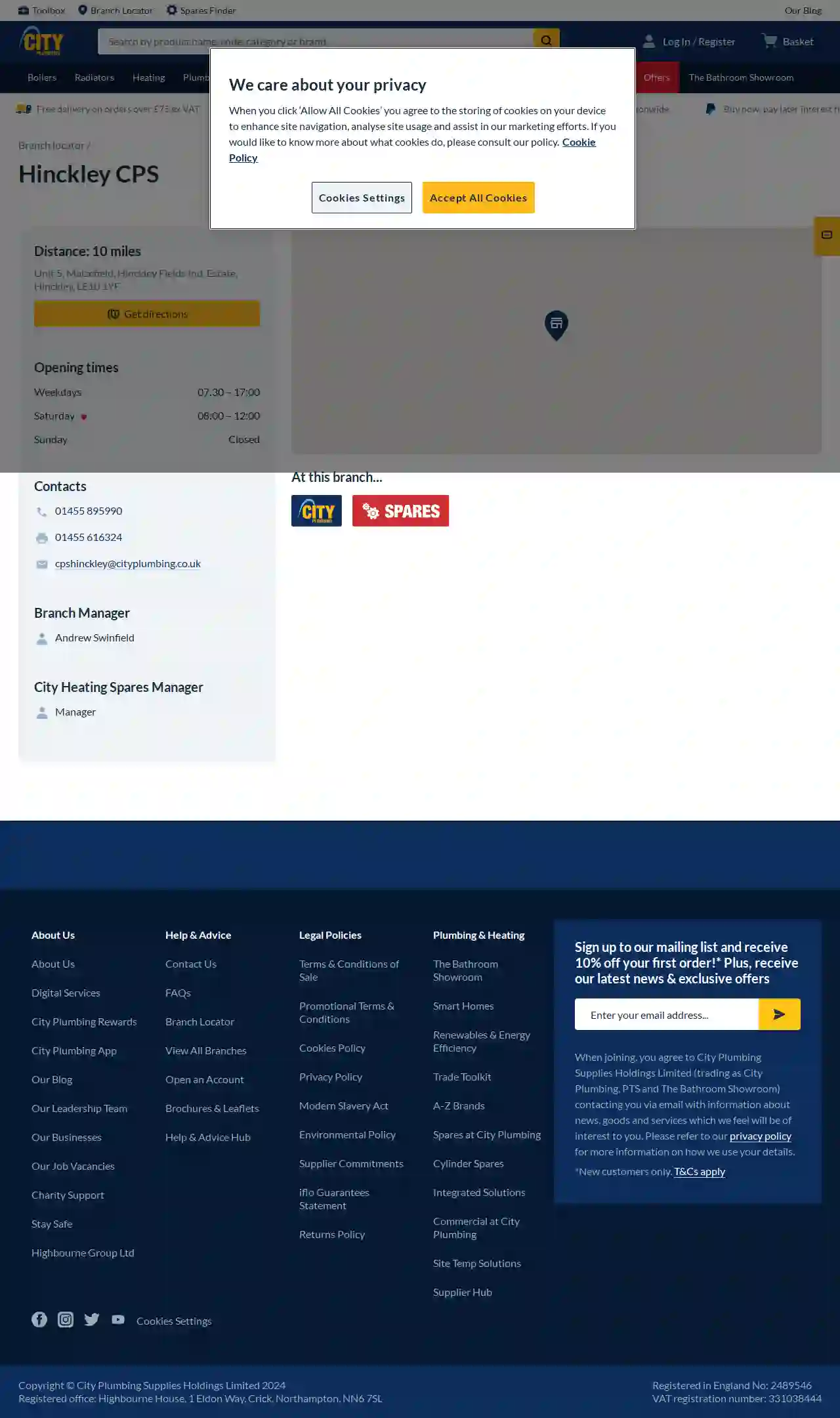
City Plumbing
32 reviewsunit 5, maizefield, hinckley fields ind. estate, hinckley, Hinckley, LE10 1YF, GBCity Plumbing are your trusted plumbing and heating suppliers for the trade. Whether you’re fitting a new boiler, radiator or full bathroom suite, we’ve got all the tools you need to get the job done. From electricals to plumbers’ supplies and much, much more – we stock all the top brands at affordable trade prices. When you’re on a job, time is money. That’s why we stock a wide range of essential products. From copper tubing to towel rails, we’ll make sure you get the plumbing supplies you need within a day or so. As award-winning plumbers’ merchants and specialist distributors, we’ve got over 350 branches across the UK and have been serving our loyal customers for over 40 years. As such, we offer next-day delivery and click & collect options to suit you – because nobody likes to be kept waiting. For the best quality plumbing supplies from reputable manufacturers, find your local branch or get in touch with our team. If you’d like a little more inspiration, come on down to our bathroom showrooms. Our specialist team is always on hand to offer professional advice to assist you with your next project.
- Services
- Why Us?
- Accreditations
- Gallery
Get Quote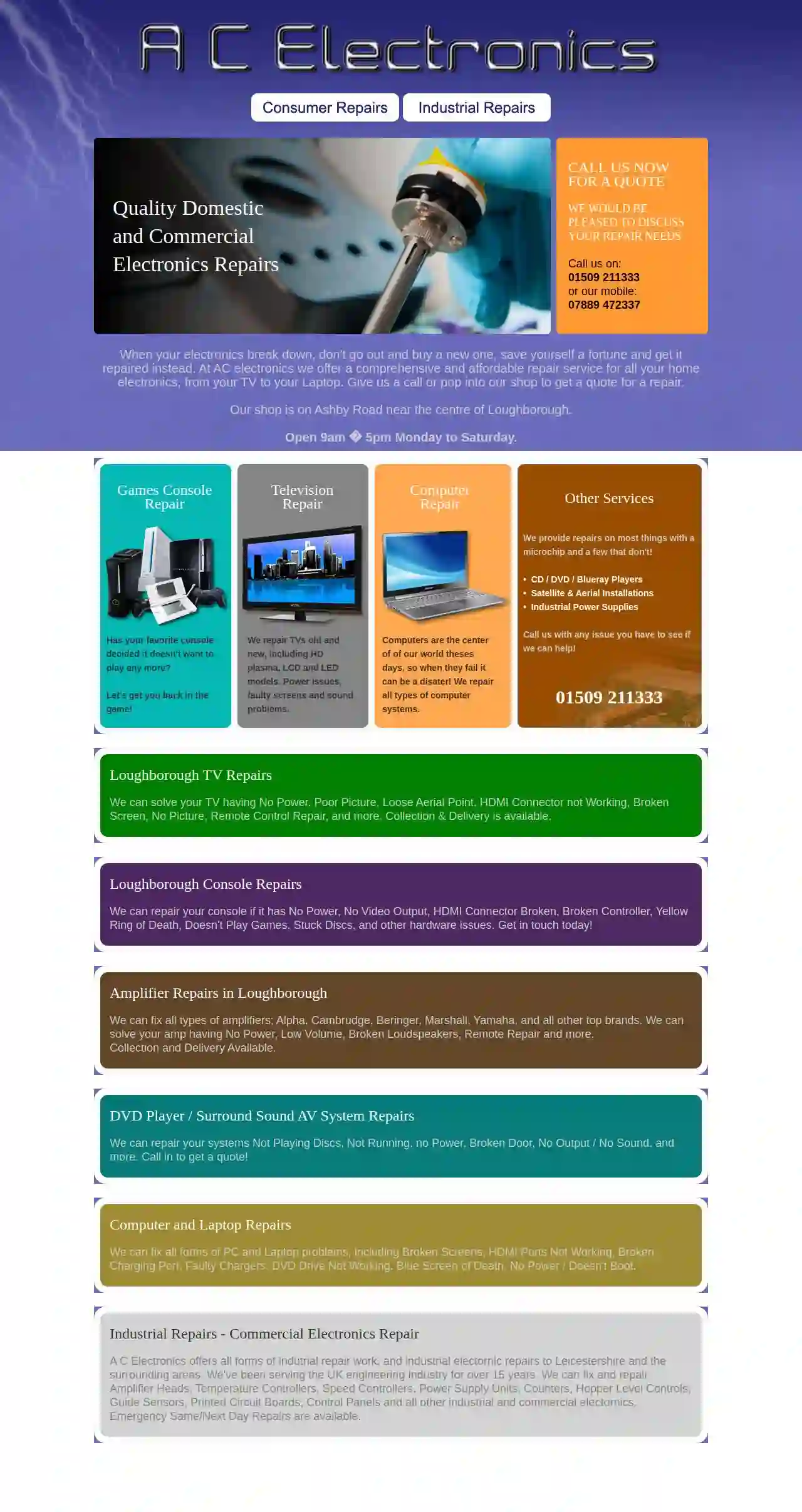
ac electronics
4.7160 reviewsAshby Road, Loughborough, GBAt AC Electronics, we offer a comprehensive and affordable repair service for all your home electronics, from your TV to your Laptop. We've been serving the UK engineering industry for over 15 years. We can fix and repair Amplifier Heads, Temperature Controllers, Speed Controllers, Power Supply Units, Counters, Hopper Level Controls, Guide Sensors, Printed Circuit Boards, Control Panels and all other industrial and commercial electronics. Our shop is located on Ashby Road near the centre of Loughborough and we are open 9am - 5pm Monday to Saturday.
- Services
- Why Us?
- Gallery
Get Quote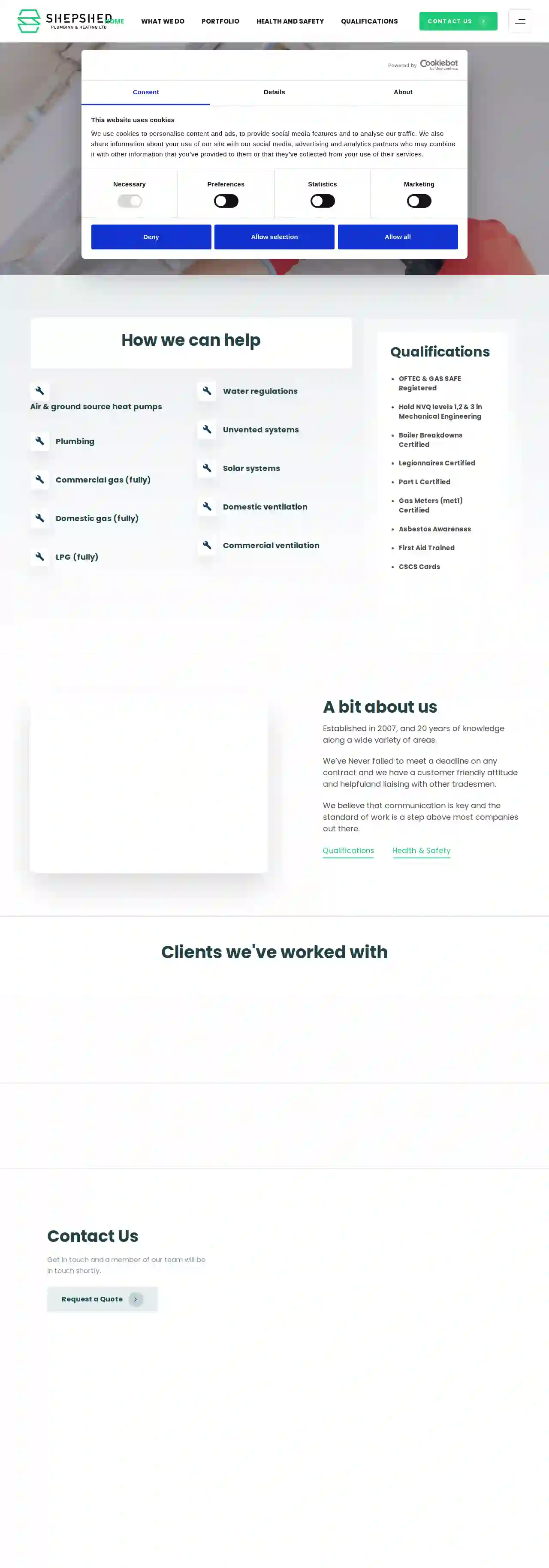
Shepshed Plumbing & Heating Ltd
Shepshed Industrial Estate, Shepshed, Unit 1, LE12 9AA, GBShepshed Plumbing & Heating Ltd is a company established in 2007 with over 20 years of experience in plumbing and heating. They offer a wide range of services, including air and ground source heat pumps, plumbing, commercial and domestic gas, LPG, water regulations, unvented systems, solar systems, domestic and commercial ventilation. The company prides itself on its qualifications, holding OFTEC & GAS SAFE registration, NVQ levels 1, 2 & 3 in Mechanical Engineering, and various certifications such as Boiler Breakdowns, Legionnaires, Part L, Gas Meters (met1), Asbestos Awareness, First Aid, and CSCS cards. They emphasize their commitment to customer satisfaction, meeting deadlines, and clear communication.
- Services
- Why Us?
- Accreditations
- Gallery
Get Quote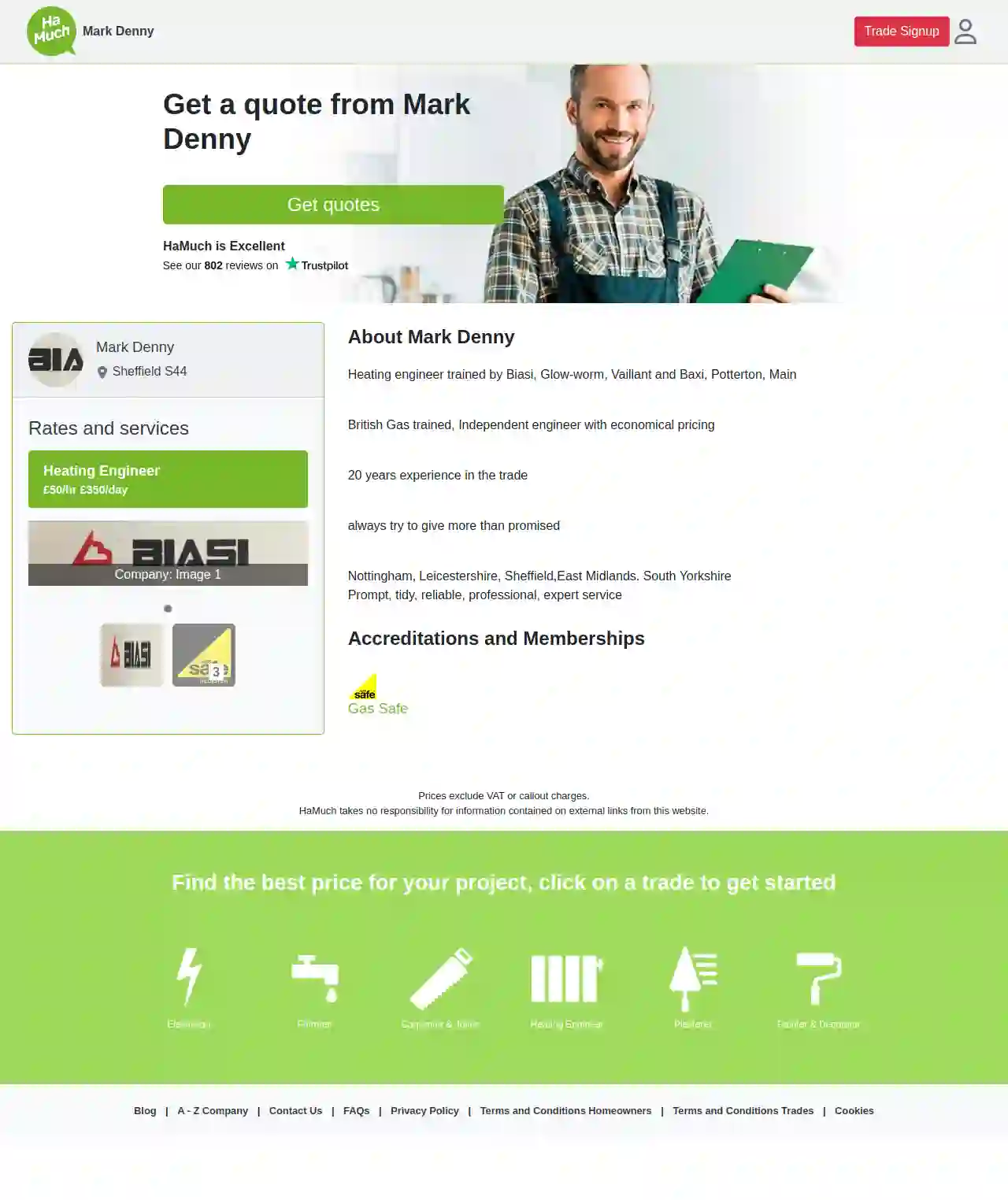
Mark Denny
Sheffield, S44, GBMark Denny is a heating engineer based in Sheffield, serving Nottingham, Leicestershire, Sheffield, East Midlands, and South Yorkshire. With 20 years of experience, he is trained by leading brands like Biasi, Glow-worm, Vaillant, Baxi, Potterton, and Main. He is also British Gas trained and offers economical pricing. Mark prides himself on providing prompt, tidy, reliable, professional, and expert service.
- Services
- Why Us?
- Accreditations
- Our Team
- Testimonials
- Gallery
Get Quote
ET Boiler Services Ltd - AGA & Rayburn Engineer & Services - Rayburn Sales - Hinckley - Leicestershire - Derbyshire
416 reviewsHinckley, GBWe provide a high level of expertise on all AGA & Rayburn oil and solid fuel models. We have over 70 years combined experience within our family business. As a recognised RAYBURN HEAT CENTER we are able to service and repair any make or model with genuine approved Rayburn parts to the standards you would expect from such a high-quality brand. Due to our relationship with suppliers we are able to offer sales of new appliances, as well as installation, warranty cover and service on all makes and models. Please contact us for further information on the wide range of models that we provide.
- Services
- Why Us?
- Gallery
Get Quote
Boiler Care Gas
4.524 reviews53 John Street, Hinckley, LE10 1UX, GBWelcome to Boiler Care, the affordable alternative to British Gas. Boiler Care Hinckley is a family run business that has operated in the Hinckley and Leicestershire area for over 35 years. We have a team of qualified engineers to carry out your requirements for boiler care, Central Heating installations, central heating repairs and all gas appliance installations and maintenance. We repair, service and maintain most gas equipment and have a gas appliance showroom for you to visit during opening hours. For an all round heating repairs and heating installation service we have the skilled and qualified heating engineers to assist you.
- Services
- Why Us?
- Accreditations
- Our Team
- Testimonials
- Gallery
Get Quote
GalxC Cooling Midlands
Coalville, GB- Services
- Why Us?
- Gallery
Get Quote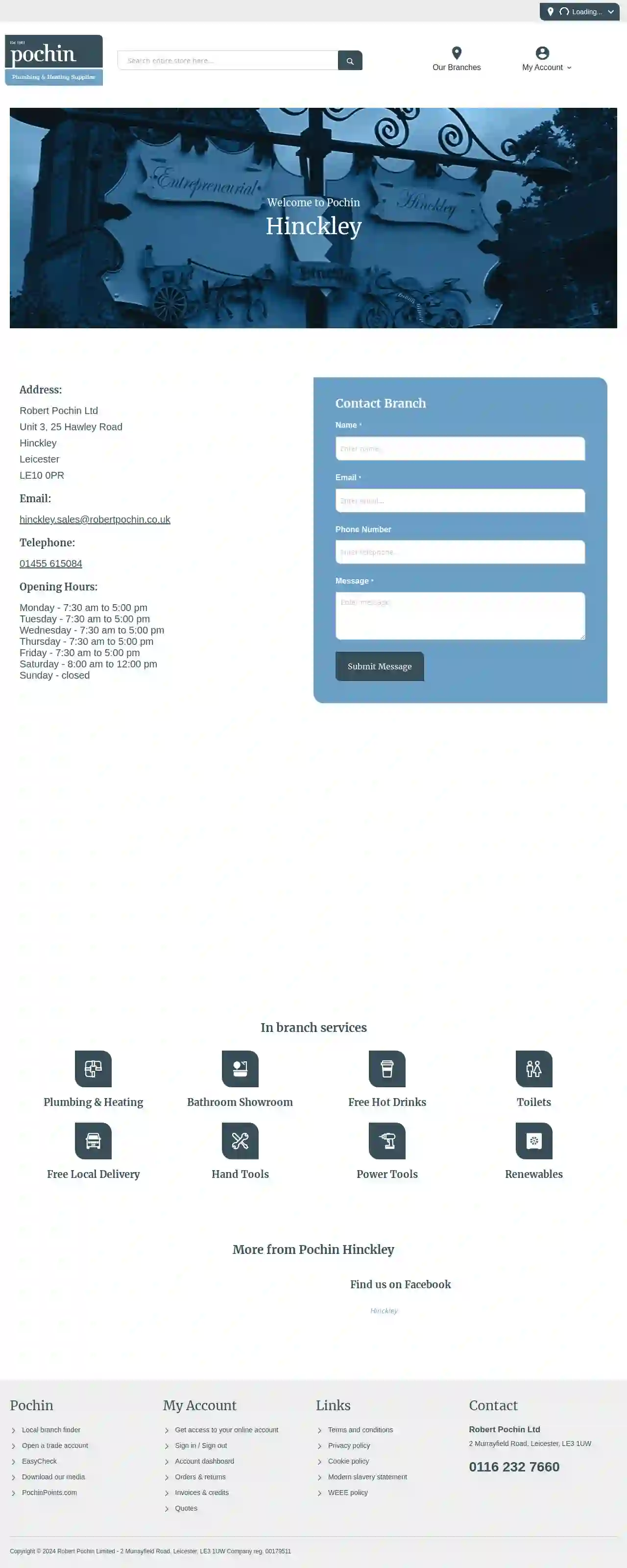
Pochin
53 reviewsUnit 3, 25 Hawley Road, Hinckley, LE10 0PR, GBRobert Pochin Ltd is a leading supplier of plumbing and heating products, serving the trade and public for over 100 years. With a wide range of products from top brands, we offer everything you need for your next project, from basic tools to complete bathroom suites. Our knowledgeable and friendly team is always on hand to offer expert advice and support. We are committed to providing our customers with the best possible service and value, and we are proud to be a trusted name in the industry.
- Services
- Why Us?
- Gallery
Get Quote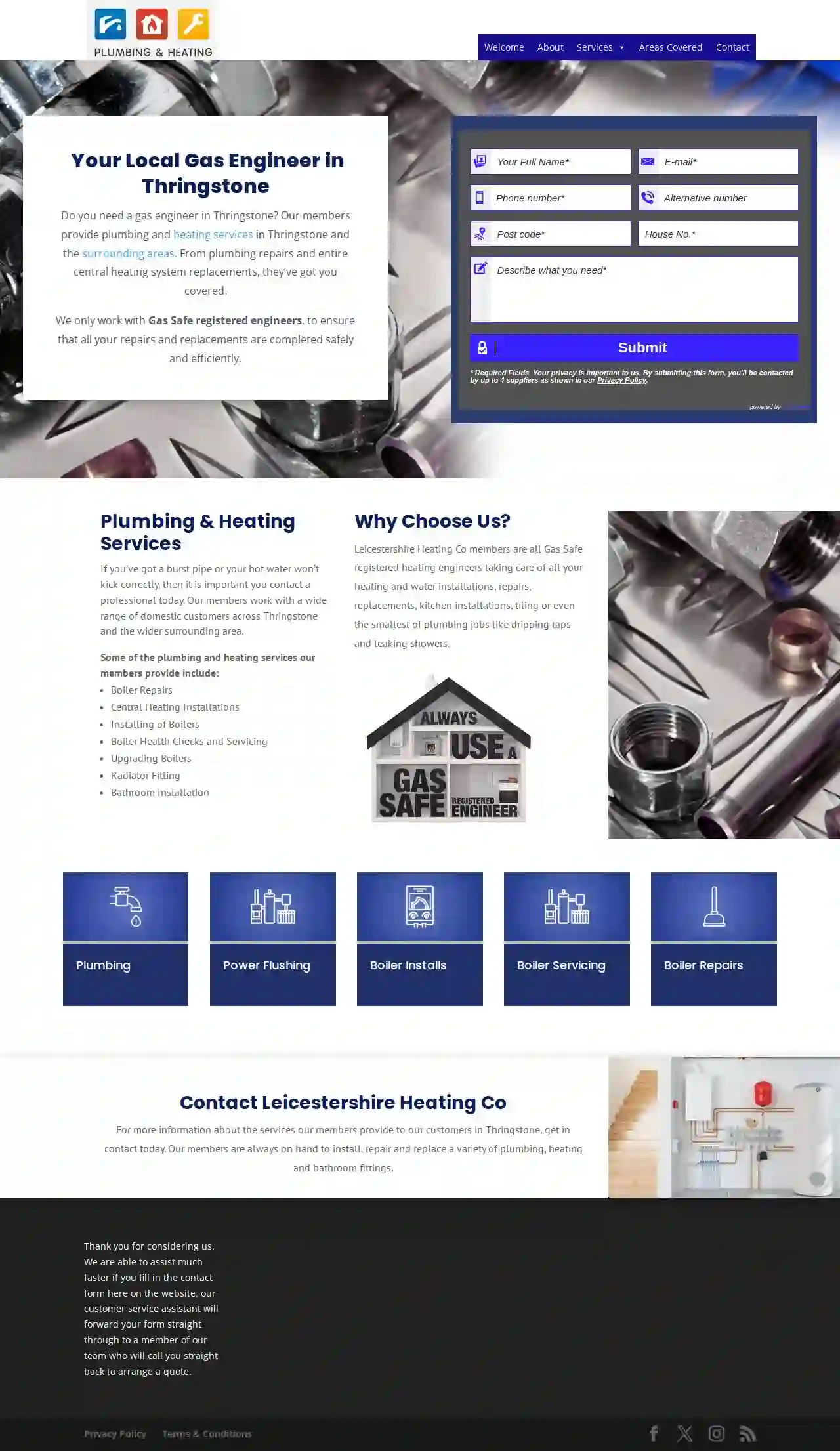
Anderson Gas Heating Services
Coalville, GBLeicestershire Heating Co provides plumbing and heating services in Leicestershire and the surrounding areas. Our members are Gas Safe registered engineers, ensuring all repairs and replacements are completed safely and efficiently. We offer a range of services, including boiler repairs, central heating installations, boiler health checks and servicing, upgrading boilers, radiator fitting, and bathroom installation. Our team is dedicated to providing excellent customer service and ensuring that all our customers receive the highest level of workmanship and professionalism.
- Services
- Why Us?
- Gallery
Get Quote
Transcool Ltd
32 reviews166 Battram Road, Coalville, LE67 1GB, GBTranscool is a refrigeration company based in the East Midlands, specialising in refrigeration applications. Our competent trained Refrigeration Engineers carry out efficient economic refrigeration repairs and service. We understand a small food takeaway has different requirements to corporate manufacturers, so we tailor our service to meet your needs. We are always keen to save our customers money in all aspects, be it energy saving or economical solutions. We are dedicated to meeting your temperature control and refrigeration needs whilst delivering exceptional service and customer care.
- Services
- Why Us?
- Testimonials
- Gallery
Get Quote
Over 12,692+ HVAC Contractors on our platform
Our HVAC companies operate in Broughton Astley and beyond!
HVACCompaniesHub has curated and vetted Top HVAC Companies arround Broughton Astley. Find a reliable business today.